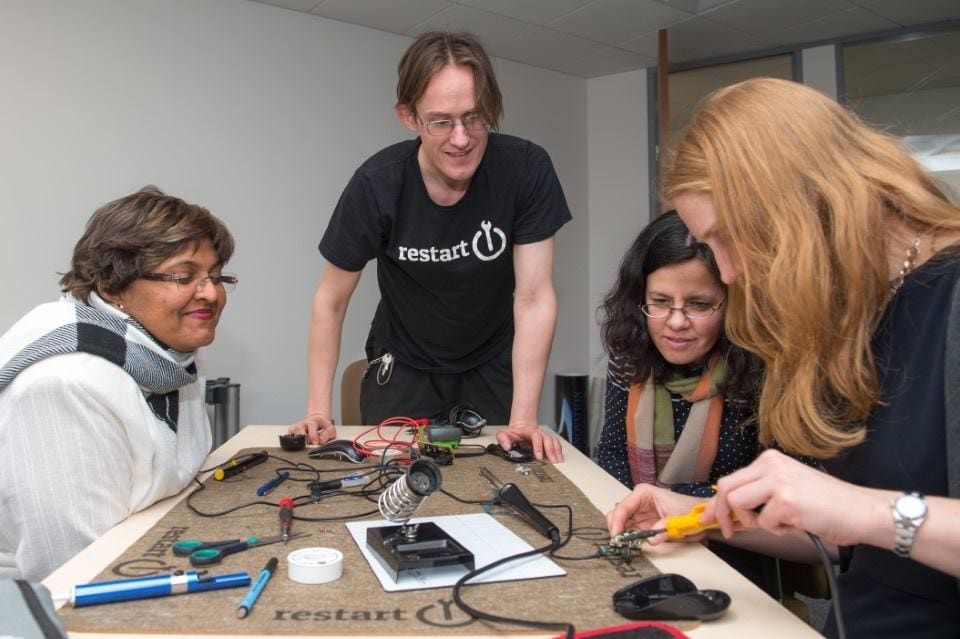New right-to-repair laws in Europe are aiming to reduce waste, extend product lifespans, and move past “throw-away” mindsets and products. In a recent interview, Ugo Vallauri, co-founder of The Restart Project in the U.K., shared insights on the importance of repairability and accessibility for all products. The Restart Project focuses on repair and electronics, which is the fastest growing source of waste in the world. They celebrate the power of communities to bring back repair for everyone through events and legislative changes.
Vallauri emphasized the need to fix our relationship with the products we buy, extend their lifespans, and reduce the need for new materials. The European Right to Repair campaign, co-founded by organizations like The Restart Project, has been pushing for legislation to support consumers’ right to repair. These laws will require manufacturers to make products more repairable by increasing spare parts availability, providing repair information, and ensuring software support for devices like smartphones for at least five years.
The focus on durability, building products that last, and designing for repairability will be key aspects of the new legislation. Manufacturers will need to make phones more resistant to falls, mandate batteries that retain capacity for longer cycles, and design electronics with user-replaceable batteries starting in 2027. Financial incentives for repair, like those seen in Austria, France, and Germany, can make repair more affordable and attractive for consumers.
The repair movement also aims to expand digital access and inclusion by making technology that lasts longer accessible to more people. Repair laws will help communities with limited financial resources access durable products and reduce electronic waste globally. The new European legislation is expected to have a global impact, as manufacturers are likely to incorporate durability and repairability into their products worldwide.
Everyday consumers can support the shift towards more repairability and durability by maintaining their products, joining local repair groups, and advocating for legislative changes. Observing and questioning over-production and consumption habits can also contribute to a more sustainable approach to consumerism. The ultimate goal is to see manufacturers focus on supporting and updating products for longer, eliminate single-use products, and reduce e-waste generation as the repair movement advances.


